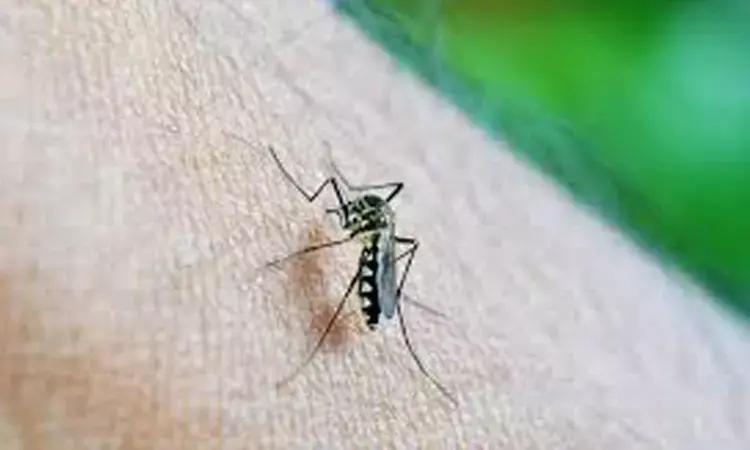Brazil: Study on Primaquine-Based Regimen for Malaria
A higher dose of (7.0 mg per kilogram) of a primaquine-based regimen is more effective for preventing relapses of Plasmodium vivax malaria compared to the currently recommended regimen, a recent study has found. The study was published in the New England Journal of Medicine on March 31, 2022.
Primaquine at a total dose of 3.5 mg per kilogram of body weight is the recommended treatment for preventing the relapse of Plasmodium vivax malaria in most Americans, despite evidence of only moderate efficacy. Considering this, Nathália N. Chamma-Siqueira and the team from Brazil aimed to evaluate the therapeutic efficacy of chloroquine and primaquine to treat and prevent relapse of P. vivax malaria in the Acre state of Brazil. In this trial, they compared a lower total dose of primaquine (3.5 mg per kilogram) with a higher total dose (7.0 mg per kilogram).
They evaluated three primaquine regimens for preventing relapse of P. vivax malaria in children at least 5 years of age and in adults with microscopy-confirmed P. vivax mono-infection. All patients received directly observed chloroquine for 3 days (total dose, 25 mg per kilogram).
- Group 1 (n=63) received a total primaquine dose of 3.5 mg per kilogram (0.5 mg per kilogram per day) over 7 days with unobserved administration.
- Group 2 (n=96) received the same regimen as group 1 but with observed administration.
- Group 3 (n=95) received a total primaquine dose of 7.0 mg per kilogram over 14 days (also 0.5 mg per kilogram per day) with observed administration.
The median age of the patients was 22.4 years. The patients were monitored for 168 days.
Findings of the Study
- By day 28, three P. vivax recurrences were observed: 2 in group 1 and 1 in group 2.
- By day 168, a total of 70 recurrences had occurred: 24 in group 1, 34 in group 2, and 12 in group 3.
- No serious adverse events were noted.
- On day 168, the percentage of patients without recurrence was 58% in group 1, 59% in group 2, and 86% in group 3.
- Survival analysis showed a difference in the day 168 recurrence-free percentage of 27 percentage points between group 1 and group 3 and a difference of 27 percentage points between group 2 and group 3.
"Primaquine administration at a total dose of 7.0 mg per kilogram had higher efficacy in preventing relapse of P. vivax malaria than a total dose of 3.5 mg per kilogram through day 168," the authors concluded.
Reference
Chamma-Siqueira NN, Negreiros SC, Ballard SB, Farias S, Silva SP, Chenet SM, Santos EJM, Pereira de Sena LW, Póvoa da Costa F, Cardoso-Mello AGN, Marchesini PB, Peterka CRL, Viana GMR, Macedo de Oliveira A. Higher-Dose Primaquine to Prevent Relapse of Plasmodium vivax Malaria. N Engl J Med. 2022 Mar 31;386(13):1244-1253. doi: 10.1056/NEJMoa2104226. PMID: 35353962.
Keywords
primaquine, malaria, malaria relapse, prevention, Plasmodium vivax, NEJM, chloroquine, Nathalia N. Chamma-Siqueira, recurrence, anti-malarial drug



0 Comments
Post a comment
No comments yet. Be the first to comment!